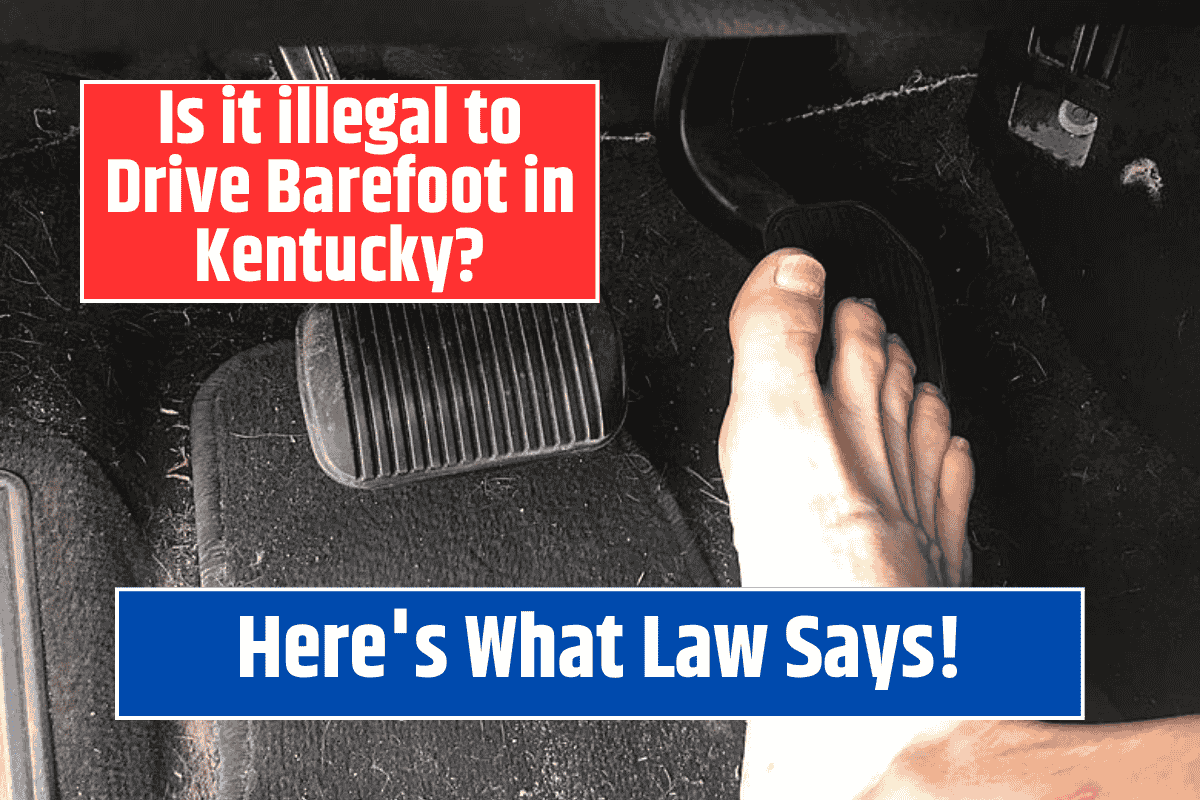When you’re out driving on Kentucky’s scenic roads or running errands, you may have wondered whether it’s legal to drive barefoot. Many people think that driving without shoes could lead to a traffic ticket or be unsafe, but what does Kentucky’s law actually say?
Let’s dive into the legality of barefoot driving in Kentucky and the safety considerations to keep in mind.
Is Barefoot Driving Allowed in Kentucky?
In Kentucky, it is legal to drive barefoot. There is no state law that specifically prohibits driving without shoes. Additionally, there is no federal law banning barefoot driving in the United States. So, if you feel more comfortable driving barefoot, you’re free to do so without worrying about breaking the law.
However, it’s important to remember that while barefoot driving is allowed in Kentucky, it might not always be the safest or most practical option.
Safety Concerns with Driving Barefoot
Although driving barefoot is legal, it can pose some risks, especially when it comes to maintaining control over the vehicle:
Reduced Control Over Pedals: Shoes provide grip on the pedals, which allows for better control, especially when it comes to braking and accelerating. Bare feet may not provide the same traction, and in wet conditions, it could be easy for your foot to slip off the pedal, leading to accidents.
Risk of Injury in an Accident: In the unfortunate event of an accident, your feet are more vulnerable when not protected by shoes. Debris, glass, or sharp objects could cause serious injuries. Insurance companies may also consider the lack of footwear as a contributing factor to any additional injuries.
Discomfort on Long Drives: Driving barefoot, especially on longer trips, could lead to discomfort. The pressure and heat from the pedals might cause discomfort or make it harder for you to focus on the road, affecting your driving ability and concentration.
What About Insurance Claims if You’re Driving Barefoot?
Even though driving barefoot is legal in Kentucky, it could still play a role in insurance claims if you’re involved in an accident. While insurance companies cannot penalize you just for not wearing shoes, they may try to argue that driving barefoot contributed to the accident.
Here’s how barefoot driving might affect your insurance claim:
Negligence: If it’s determined that driving barefoot contributed to the accident — for instance, your foot slipping off the brake pedal — the insurance company could argue negligence. This might lead to a reduction in your claim or, in some cases, a complete denial.
Claim Denial: If the accident is primarily due to a loss of control, and you weren’t wearing shoes at the time, the insurance company could consider it reckless driving and attempt to deny your claim.
Additional Liability: If you are found to be at fault due to driving barefoot, your insurance claim might be affected. This could result in higher premiums or additional liability for any damages caused in the accident.
Should You Drive Barefoot in Kentucky?
While driving barefoot is legal in Kentucky, it’s essential to consider the safety risks associated with it. Barefoot driving can reduce your control over the vehicle, especially in emergencies or in wet conditions, and can increase the risk of injury in an accident.
Additionally, your insurance company might use your lack of footwear to argue negligence or reduce your compensation.
If you prefer barefoot driving for comfort, it may be best suited for short trips or specific situations where you are confident in your ability to control the vehicle. However, for longer drives or in situations where you might need to react quickly, it’s advisable to wear shoes that provide better control over the pedals.
If you enjoy driving barefoot but are concerned about safety or insurance implications, consider keeping a pair of comfortable, flexible shoes in the car. This way, you can switch to safer footwear when needed and avoid potential complications.












